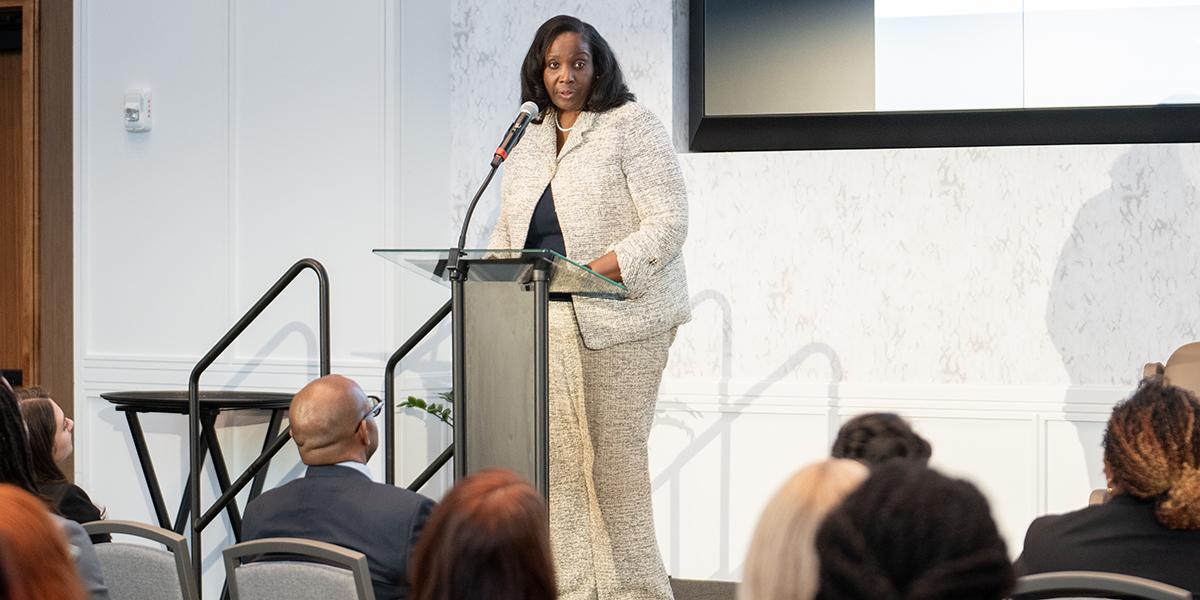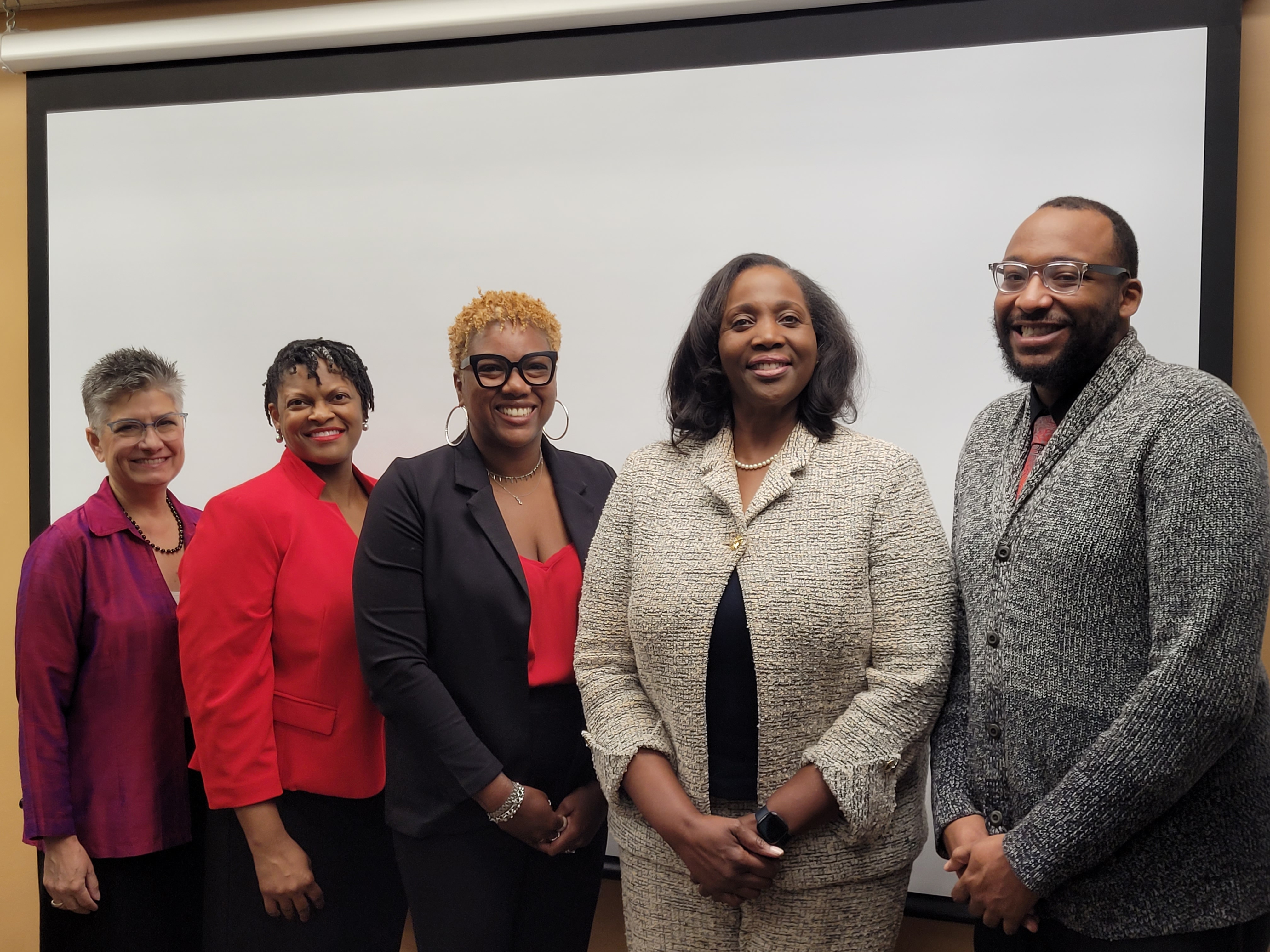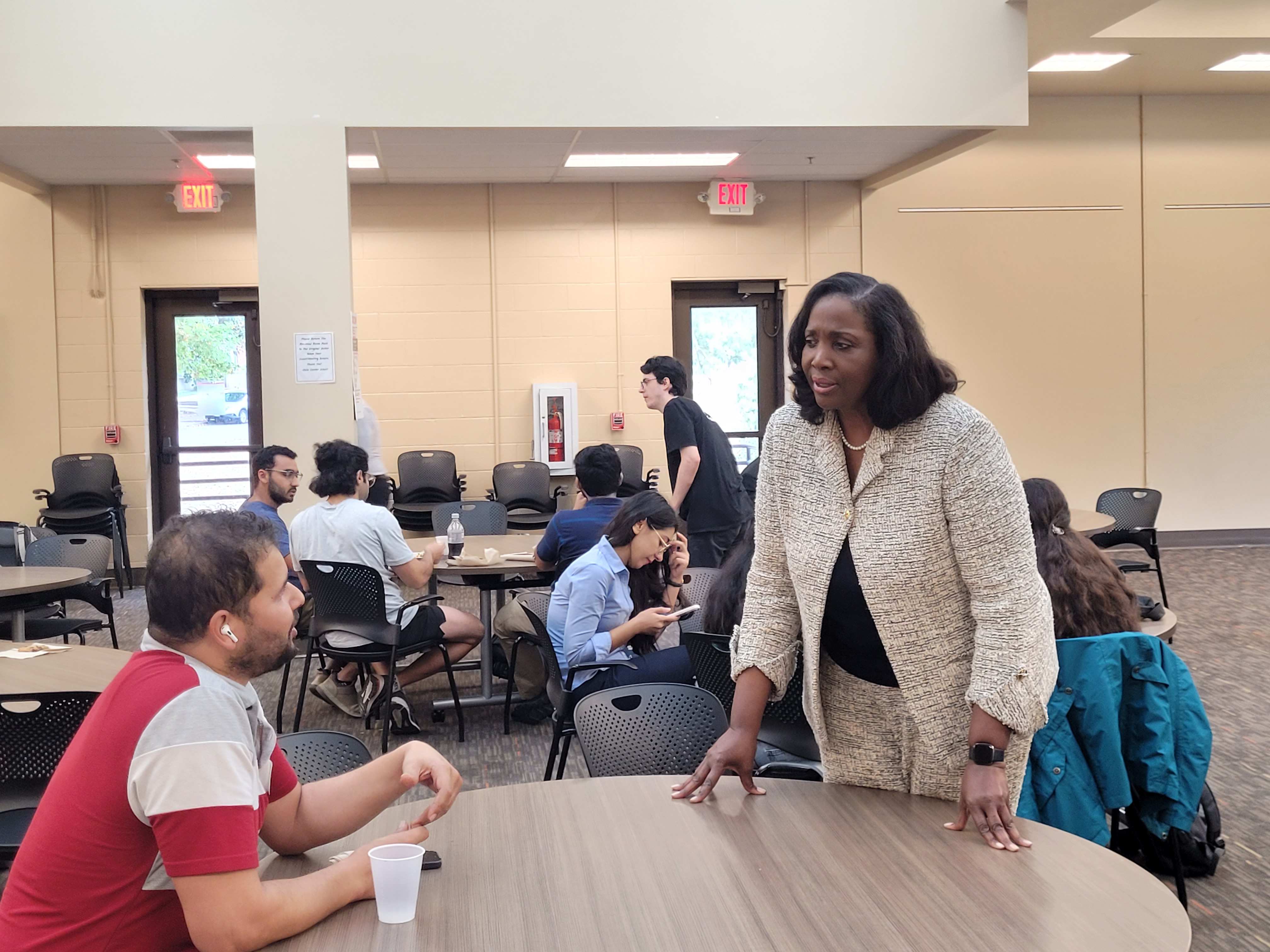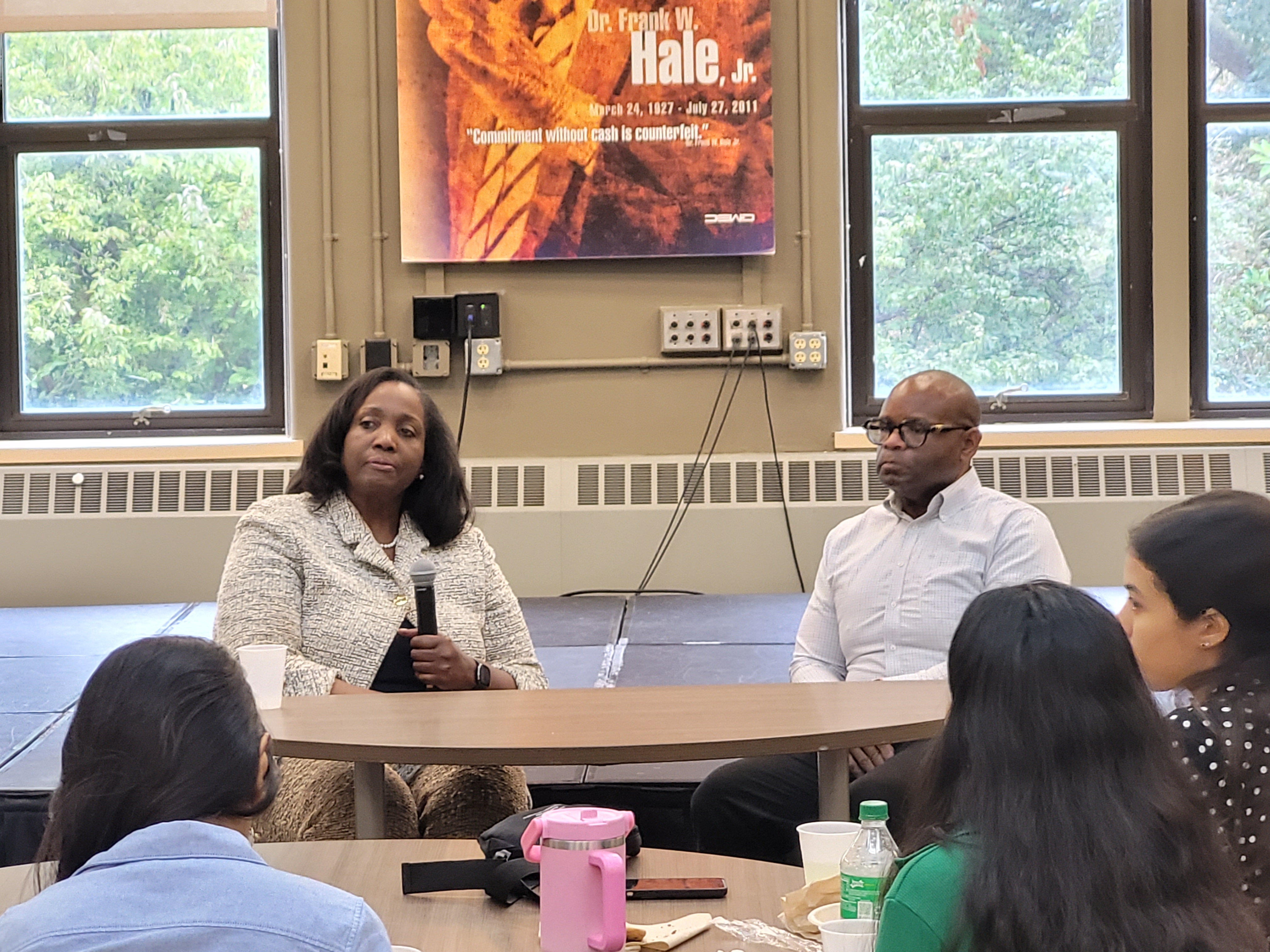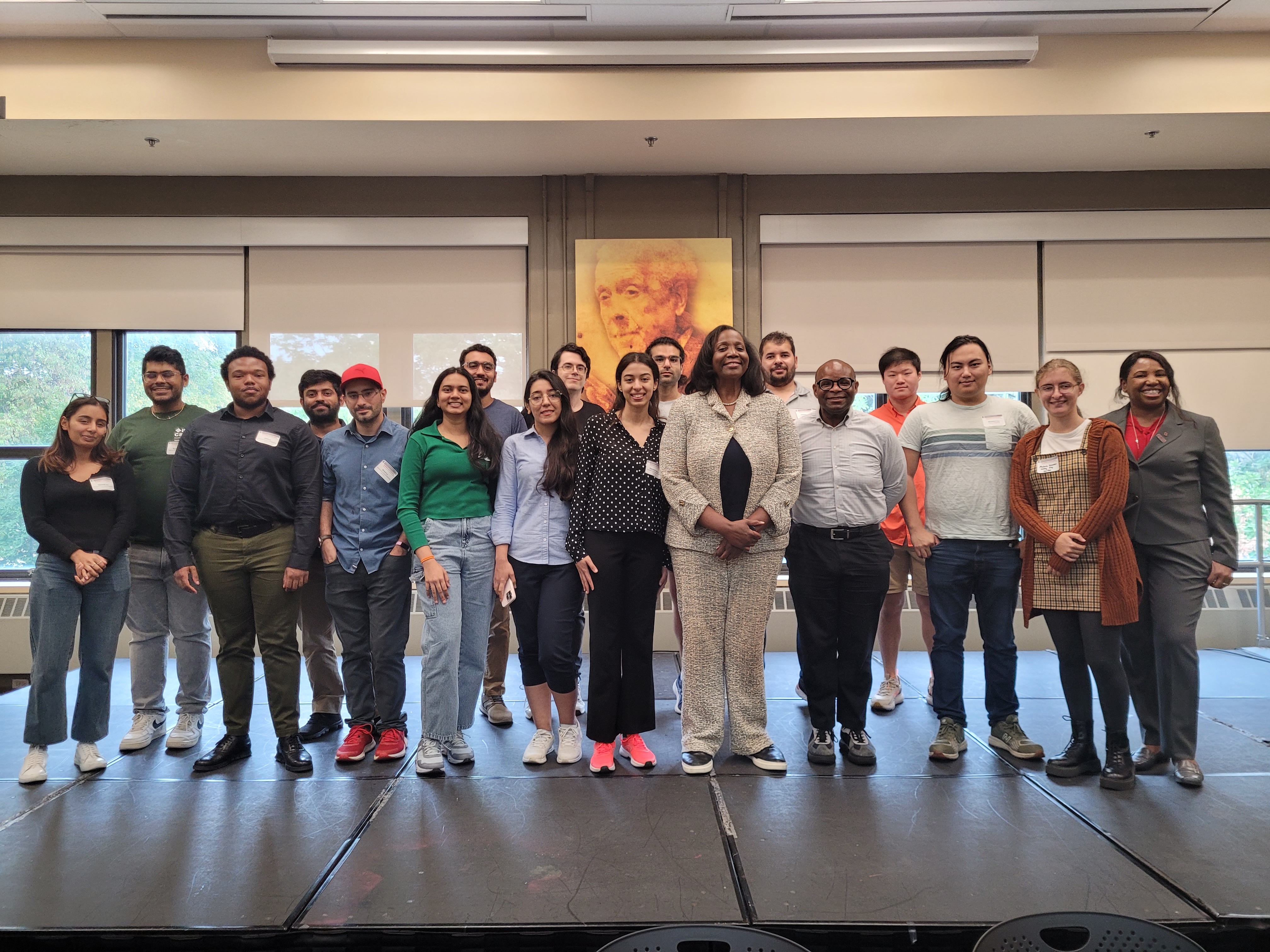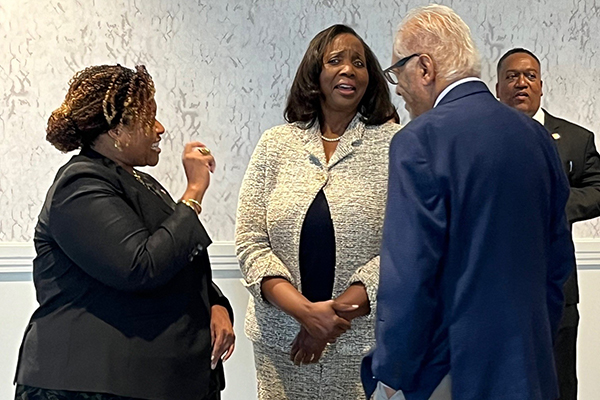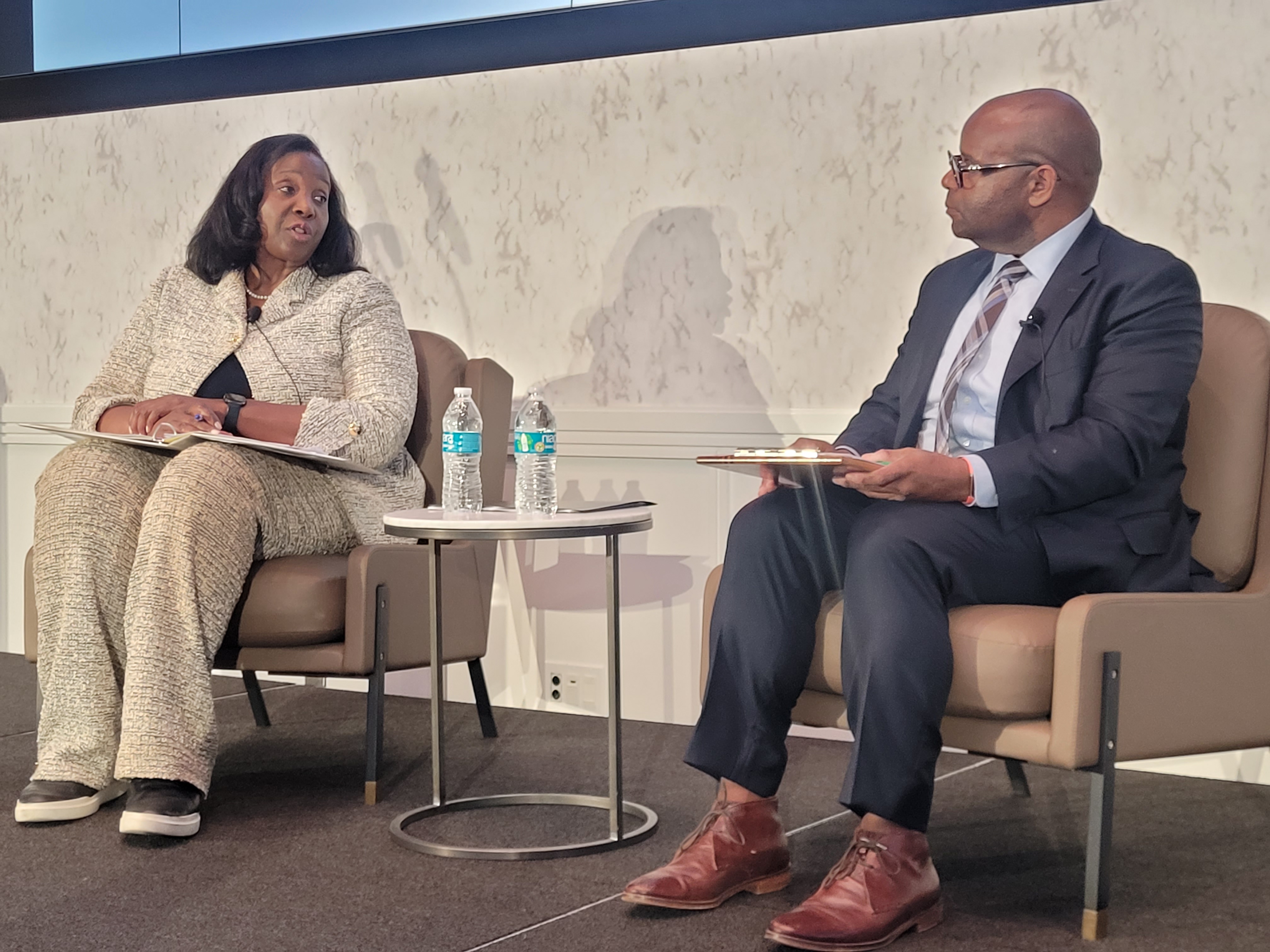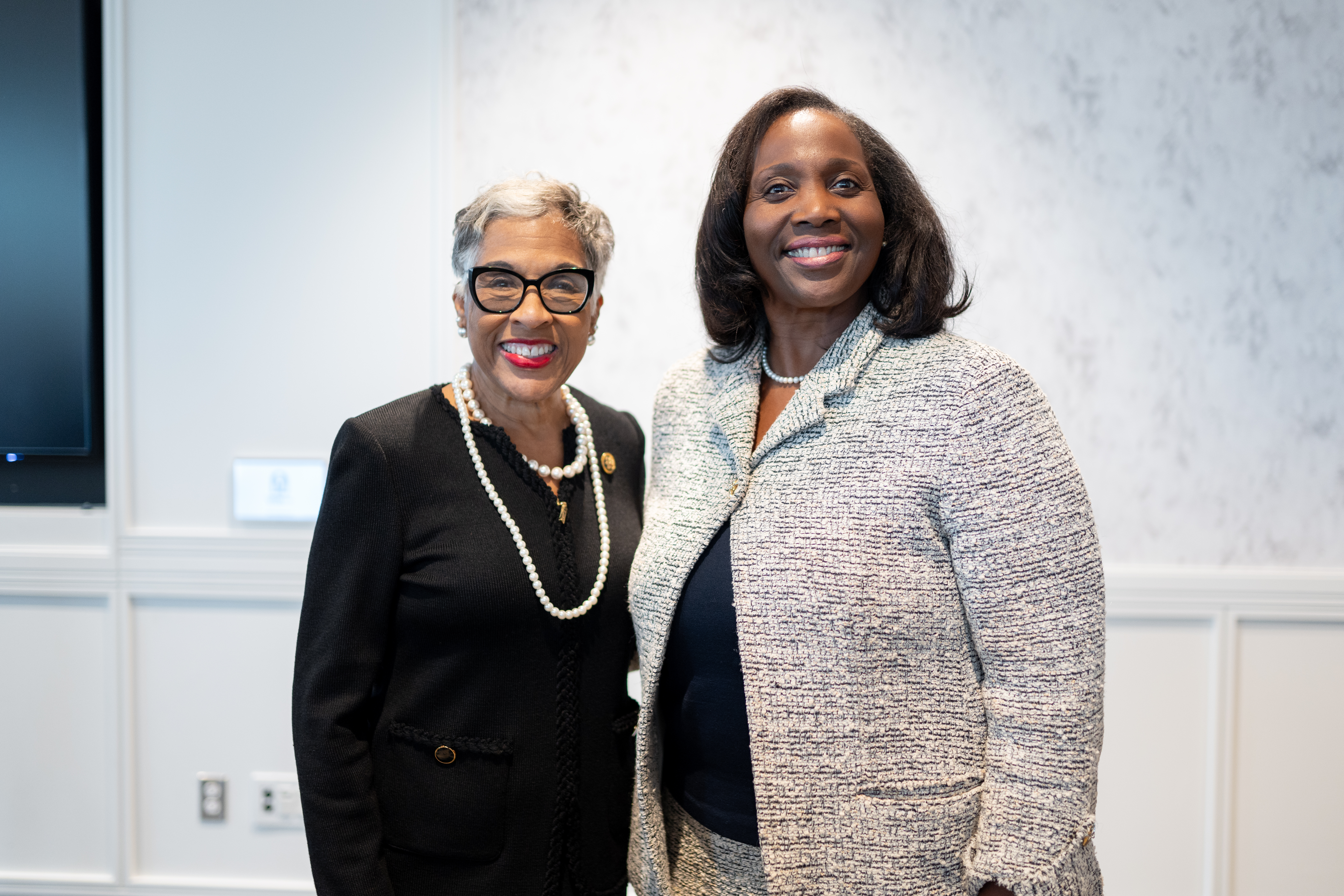The "highly uncertain" future of the workplace dominated by the adoption of Artificial Intelligence (AI) tools was the focus of a wide-ranging discussion led by Federal Reserve System Board member Lisa D. Cook, PhD, Thursday night.
Comparing AI to other revolutionary leaps forward in technology such as the steam engine, electricity, personal computers, and the Internet, Cook said AI will likely be "some combination of disconcerting and exciting" for workers. "We don't know what the ultimate magnitude and intensity of this effect will be," Cook said during her 30-minute lecture. "But AI has the potential to provide a long and sustained boost to labor productivity growth."
The first woman of color to be named to the seven-person Federal Reserve System Board of Governors, Cook's lecture as well as an ensuing conversation with Ohio State Associate Dean and ENGIE-Axium Endowed Professor of Economics Trevon Logan was held as the 26th edition of the President and Provost's Diversity Lecture and Cultural Arts Series. The evening talk capped a whirlwind day on campus for Cook that included an informal "AI Roundtable" forum held with graduate students, and a meeting with ODI Young Scholars Program staff.
Opening the program was Wendy Smooth, the university's senior vice-provost for inclusive excellence, who called the diversity lecture series one of the university's "cherished traditions." "Tonight is a prime example of The Ohio State University living our motto--education for citizenship, " said Smooth. "As Buckeyes, we take pride in being informed and empowered."
During her remarks, Cook said the impact of AI on wages and roles in the economy will likely depend on the time horizon. "In the short-run, it would be inflationary, but over the long-term, we would expect to be disinflationary."
Cook said AI is already being used in drug discoveries, energy production, and to improve the aerodynamics of cars and planes. She predicted that it would eliminate some jobs while adding others, and she encouraged students and faculty members to familiarize themselves with it. "It's not whether businesses will use AI anymore, but how?" she said.
During the conversation with Logan, Cook said the adoption of AI has the potential to cause "big equity" issues, as a Danish study showed women adopting Chat GPT (an AI tool) in the workplace at a 20 percent lower rate than men with identical jobs. "Employers can help shape those trends tremendously going forward," Cook said.
Cook's trip to Ohio State had a special family connection as her uncle, Samuel DuBois Cook, received his master's and PhD from Ohio State during the early 1950s. In the morning, Cook met with ODI staffers Chila Thomas, EdD, and Brandon Britt from the Young Scholars Program to discuss their program's summer academy which is named for her uncle, the longtime president of Dillard University in New Orleans.
As Cook's chat wrapped up, Professor Logan had a final, tricky question for the former Michigan State professor: Who will win Saturday's Michigan State-Ohio State tilt in East Lansing?
As the crowd laughed, Cook smoothly gave the question a stiff arm. "The real focus in this area should be how to defeat our common enemy," she said referencing a certain Maize and Blue team from Ann Arbor. "Can't we all just get along?... I'm looking forward to a great game...may the best team win and then go beat Michigan."
That, it seemed, everyone could agree on.
